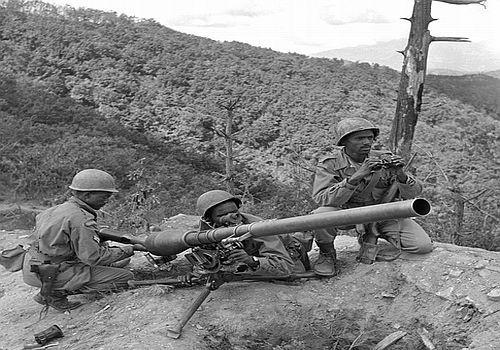
image credit: wikipedia.org
Ethiopians in the Korean War
The Background
During the Korean War, sixteen nations sent combat troops to support the Republic of Korea against the North Korean invasion.
The United States was by far the largest contributor to the United Nations force, but among the other fifteen nations was an Ethiopian contingent known as the Kagnew Battalion.
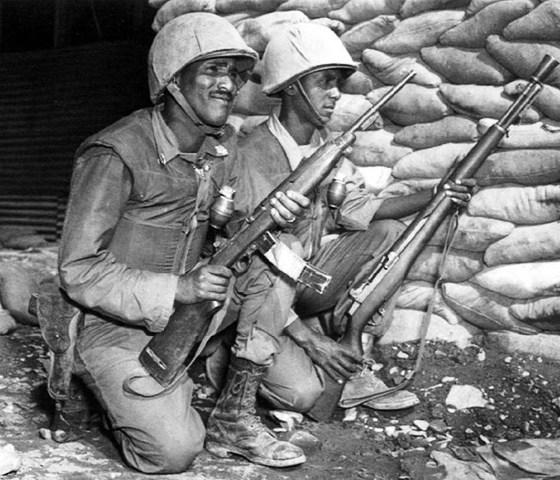
The troops for the battalion were volunteers from the Imperial Guard, which consists of the military's best trained and loyal men.
The Guard had been reconstituted after World War 2, and trained by Swedish military instructors.
Naturally, if Ethiopia was to send troops to fight in an oversea conflict, it would have to be the cream of the crop.
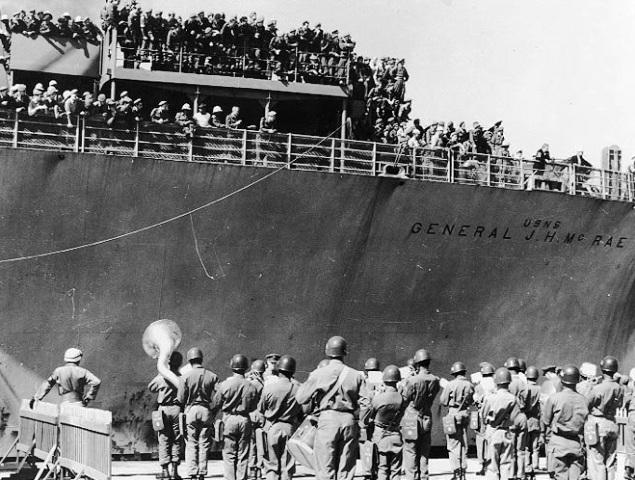
Their arrival in Korea was met by cheering people as well as the personal welcome of President Syngman Rhee.
Due to lack of equipment, the battalion was supplied with American weaponry which they learnt to use during a period of eight weeks.
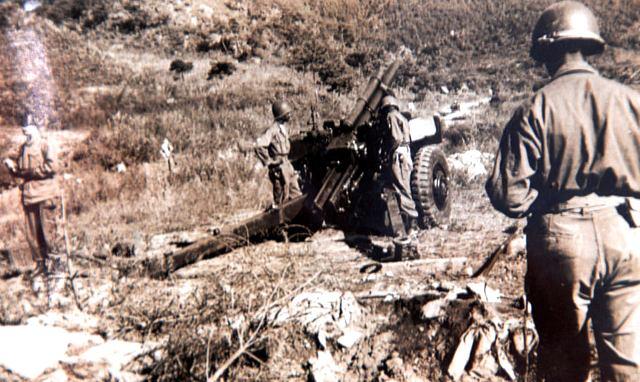
Officially, the U.S. Army spoke highly of the Kagnew's inclusion into their forces.
Despite being on the other side of the world, the Ethiopians had little difficulty adapting to the Korean weather, as the peninsula had similar topography and climate as the Ethiopian highlands.
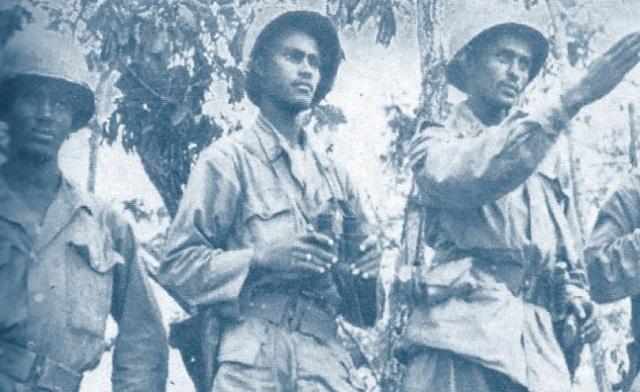
The Battle
After the training, the Kagnew Battalion was attached to the 7th Division of the United States Army, under the command of General David G. Barr.
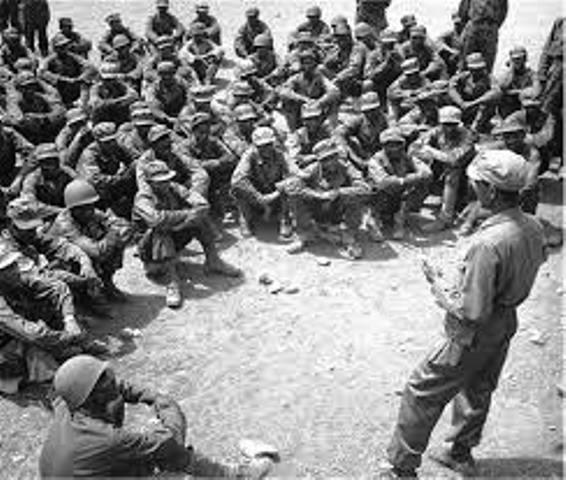
The Kagnew fought in Korea in three successive waves. Notable battles they participated in were the Battle of Pork Chop Hill and the Battle of Triangle Hill.
Chief U.S. Army historian S.L.A. Marshall noted during Pork Chop Hill his observations of the Kagnew: " ...under full observation from enemy country, eight Ethiopians walked 800 yards across no-man's land and up the slope of T-Bone Hill right into the enemy trenches.
When next we looked, the eight had become ten. The patrol was dragging back two Chinese prisoners, having snatched them from the embrace of the Communist battalion..."
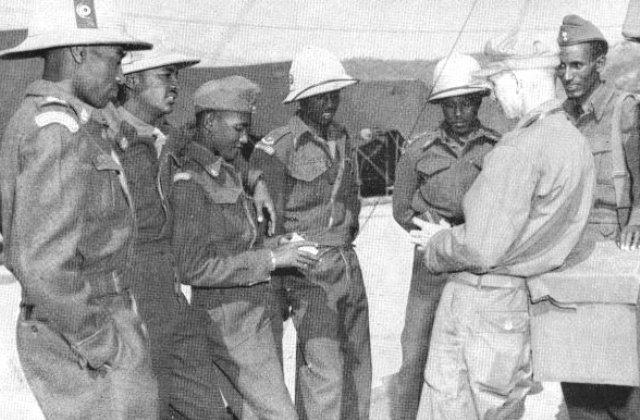
Throughout their deployment, the contingent suffered 121 KIA and 536 MIA. They served with distinction, earning one Silver Star, 18 Bronze Stars and a US Presidential Unit Citation.
A single Bronze Star was awarded to a lieutenant who single-handedly took out several bunkers near Hill 600.
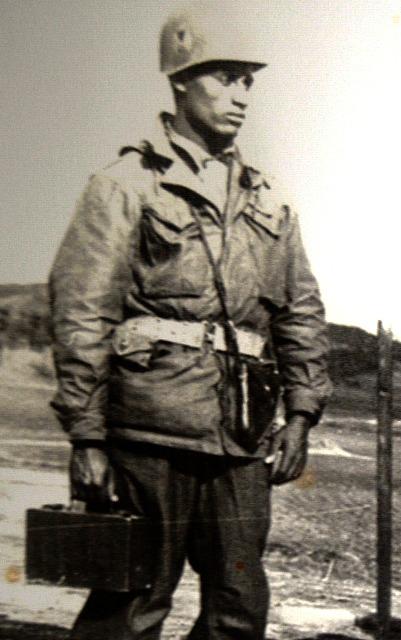
What made the Kagnew battalion stand out was that they were the only UN troops that the Chinese or North Koreans were unable to capture alive.
At the end of the war, POWs were exchanged but the Ethiopians were the only contingent who did not have any soldiers in communist custody.
Furthermore, all engagements they participated in were victories, not a single time did they engage the enemy that resulted in a defeat.
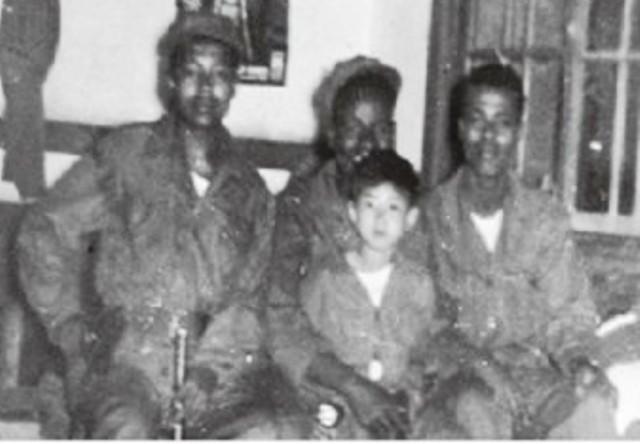
The battalion served in 238 engagements and each time they managed to avoid crippling casualties, whether they were the aggressor or defender.
The Kagnew also had the best night patrol record among the U.N. forces. Their strategy was to hold hands in columns in order to avoid separation during night ambushes.
I've heard that even the U.S. Special Forces adopted this strategy during the Vietnam War.
Another distinction was that the Kagnew never left their dead behind.
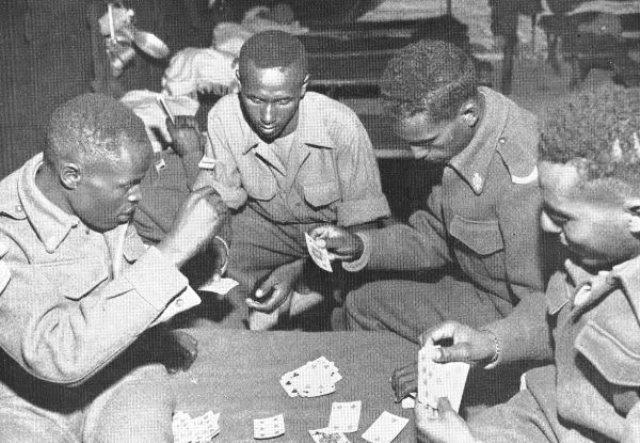
Chinese and North Korean troops were never able to find any corpses of the soldiers they killed.
Individual Ethiopian soldiers volunteered regularly to retrieve the bodies of fallen comrades, even if they had to face heavy fire from the enemy.
Rumors began to spread among the Chinese and North Korean troops that the Ethiopians were possibly super-human or even cannibals.
This myth was most likely bolstered by the fact that most Chinese and Koreans had never seen blacks before, and the Ethiopians were the only all-black contingent among the UN forces.
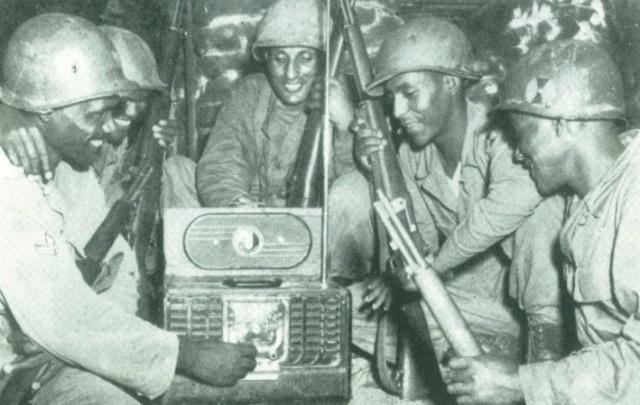
In fact, the Chinese even offered a reward to any soldier who could bring back an Ethiopian... dead or alive.
After the Marxist revolution of 1974 which resulted in the death of Haile Selassie, the veterans of Korea kept a low profile, because the Derg regime tried actively to erase their nation's active stance against fellow communists.
Some were even executed as counter-revolutionaries during the Red Terror (1977-1978).
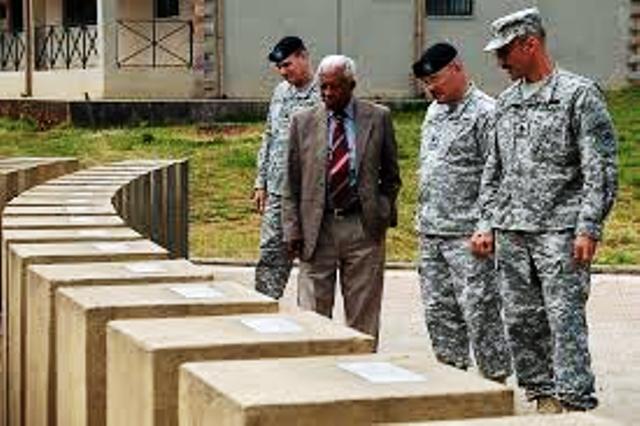
It was not until after the fall of the Derg in 1991 that the Kagnew veterans were once again honored as national heroes.
https://m.youtube.com/watch?v=CXFzWqzKQ0k
